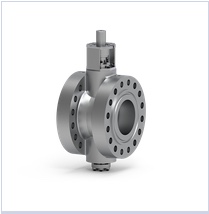Oct-2022
Development and commercialisation of superabsorbent polymer technology
As part of the Propylene Derived Petrochemical Project (PDPP) of BPCL Kochi Refinery (KR), superabsorbent polymer (SAP) was identified as one of the value-added products of acrylic acid.
Saptarshi Ray, Renny AM, Jitendra Satyarthi, MV Syamkumar, Vaishakhi Singh, Amit Kunte and Ravikumar V
Bharat Petroleum Corporation Ltd
Viewed : 1175
Article Summary
However, as licences for niche petrochemicals are unavailable, BPCL Corporate R&D Centre, Greater Noida, took up the challenge of developing end-to-end process technology for SAP.
SAP is a cross-linked polymer of acrylic acid, which is capable of absorbing water many times its own weight. This special ability of SAP is useful in various hygiene products, like baby and adult diapers, feminine hygiene products, and superabsorbing sheets. Currently, the market for SAP in India is 50.5 KTPA with a CAGR of 6%, resulting in approximate FOREX outgo equivalent to INR 1000 crores.
Globally, SAP is produced by two different processes: solution polymerisation and inverse suspension polymerisation. Except for Sumitomo, which uses the inverse suspension process, almost all major manufacturers of SAP use the solution polymerisation process. The latter uses water as the solvent and does not require any other solvent or surfactants during the polymerisation process. It is scalable to 100+ KTPA in a single train.
BPCL has constructed a 200 TPA technology demonstration unit at Kochi Refinery based on the solution polymerisation process. The process was designed and developed 100% in-house by the BPCL Corporate R&D Centre. Basic engineering and project execution was done jointly by the BPCL R&D Centre and Kochi Refinery projects team. All individual process units are well integrated to produce SAP in an end-to-end manner.
Machine operations are controlled by SCADA from the refinery control room with minimal manual intervention in the field for feed preparation and monitoring of the plant. The plant was commissioned jointly by the BPCL R&D team and Kochi Refinery.
When designing the formula for hygiene-grade SAP, certain points should be highlighted. Development must keep in mind the health aspects while maximising the efficiency of the product. The product developed by BPCL meets all the critical parameters of international benchmarks, like residual monomer, absorption under load, and centrifugal retention capacity. The product is already on the market, thereby realising the dream of Atmanirbhar Bharat (self-reliant India).
The Process
A typical process for the commercial production of superabsorbent polymer includes:
• Feed preparation: Acrylic acid is partially neutralised with caustic and diluted with water
• Polymerisation: Acrylic acid and sodium acrylate, in water solution, are polymerised using various free radical initiators in the presence of cross-linkers
• Drying: The gel containing >60% water is dried at high temperature to remove the water
• Milling: Post drying, the solid is milled to the desired particle size
• Surface treatment: The polymer is stitched on the surface to impart physical strength to the swollen SAP particles
Processing equipment also plays a major role in achieving the target specifications. Thus, technology development involved using state-of-the-art process equipment for high throughput processing, maximum monomer conversion, and off-spec minimisation, which is pertinent in the SAP industry to achieve low unit manufacturing costs. The present technology developed at BPCL R&D has taken care of all these aspects by employing indigenously designed industry-representative pre-polymerisation and post-polymerisation pilot equipment to enhance the overall economics of the process.
Major suppliers of SAP in India are Sumitomo, Nippon Shokubai, LG, Sumitomo Seika, and various Chinese suppliers. The significant growth in SAP demand has recently created the need to build large, grassroots SAP plants incorporating the newest and most cost-competitive process technology. BPCL is in a particularly advantageous position as it is backwards integrated into the acrylic value chain. The commercial-scale plant based on in-house technology and acrylic acid feedstock from KR-PDPP is thus expected to drastically drive down the cost of SAP production and boost the hygiene industry in India.
This short article appeared in the 2022 Refining India Newspaper, which you can view HERE
Categories:
Add your rating:
Current Rating: 4

















